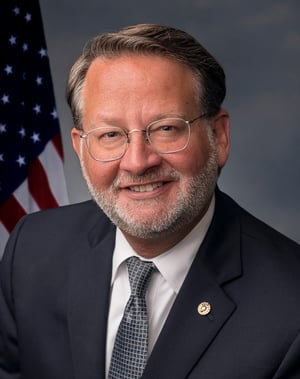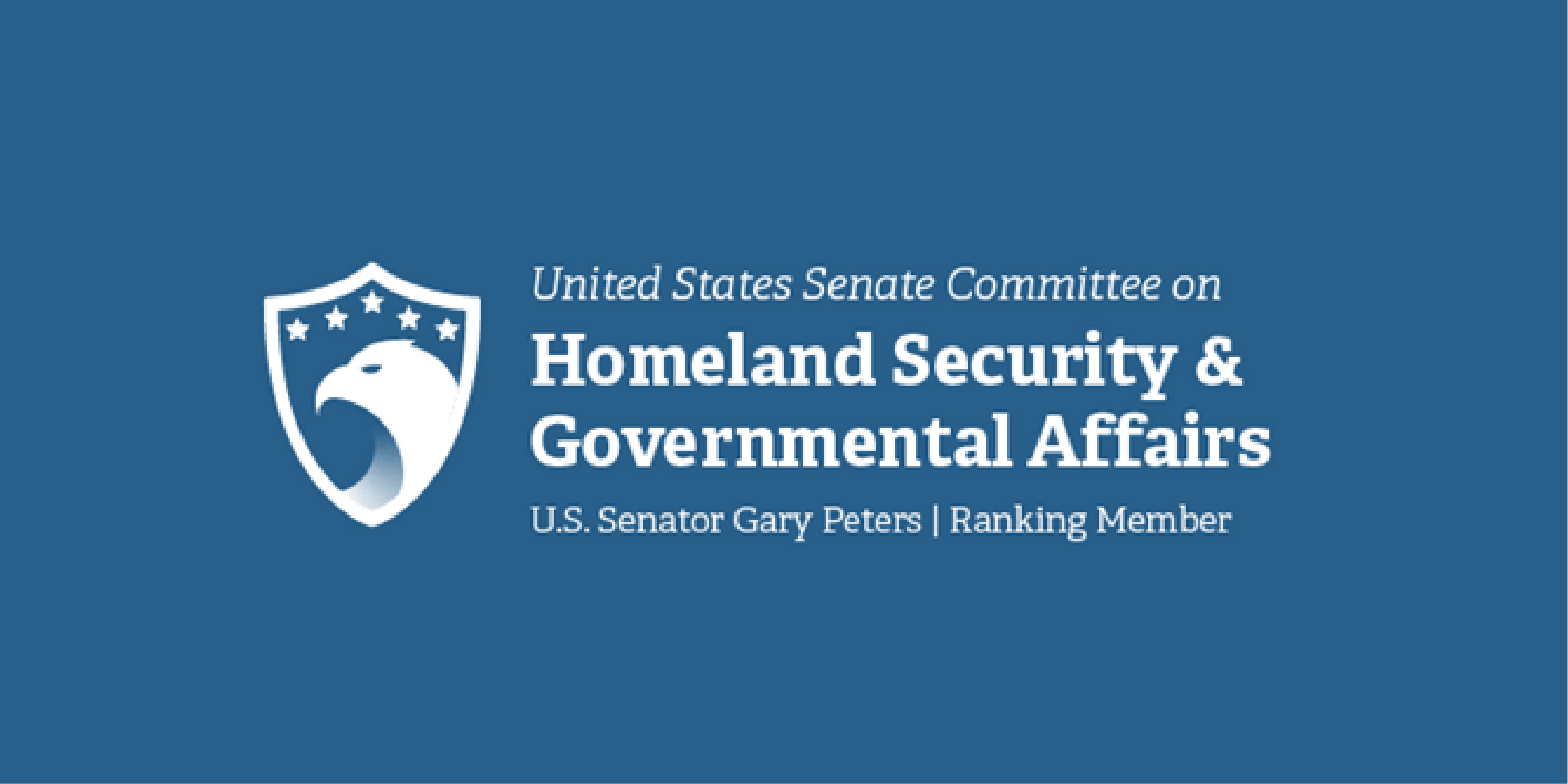
Highlights Legislation That Strengthens Security, Addresses PFAS Contamination, Makes Federal Government More Efficient & Saves Taxpayer Dollars
DETROIT, MI – U.S. Senator Gary Peters (MI), Chairman of the Senate Homeland Security and Governmental Affairs Committee, highlighted the 19 bills he authored, passed, and were signed into law over the past two years, which will help strengthen our national security and cybersecurity, address PFAS contamination, and make the federal government more efficient and save taxpayers’ money. Peters’ 19 bills passed and signed into law during the 117th Congress (2021-2022) are the most of any Senator in more than 40 years, according to the Congressional Research Service and the Senate Historical Office.
“My top priority has been finding common ground to deliver results on issues important to Michiganders and Americans across the country,” said Senator Peters. “From bolstering our nation’s cybersecurity defenses and national security to protecting our communities from toxic PFAS chemicals and saving taxpayer dollars, I have worked in a bipartisan manner to enact commonsense legislation. There is still much more work to do, and I remain committed to partnering with my colleagues – Republican and Democratic – to keep making progress.”
Peters’ 19 bills signed into law will:
STRENGTHEN CYBERSECURITY
- The K-12 Cybersecurity Act of 2021 will enhance cybersecurity assistance to K-12 schools across the country by instructing the Cybersecurity and Infrastructure Security Agency to examine the risks and challenges that schools face in securing their systems.
- The Federal Rotational Cyber Workforce Program Act of 2021 will create a civilian personnel rotation program for cybersecurity professionals at federal agencies and enable employees to help attract and retain top cyber talent by providing opportunities for federal employees to gain experience with other agencies and expand their professional networks.
- The State and Local Government Cybersecurity Act of 2021 will facilitate coordination between the Department of Homeland Security and state and local governments by requiring federal cybersecurity experts to share information regarding cybersecurity threats and vulnerabilities, as well as resources to prevent and recover from cyber-attacks, with states and localities who are increasingly targeted by bad actors.
ADDRESS PFAS CONTAMINATION
- The Protecting Firefighters from Adverse Substances (PFAS) Act will direct the Department of Homeland Security and other agencies to develop educational resources to help protect firefighters, emergency response personnel, and the communities they serve from PFAS exposure.
- The Preventing PFAS Runoff at Airports Act will deploy more existing Federal Aviation Administration funding for commercial airports to purchase devices necessary to test their firefighting equipment without discharging toxic PFAS chemicals.
IMPROVE FEDERAL DISASTER RESPONSE
- The Civilian Reservist Emergency Workforce (CREW) Act will extend critical employment protections to Federal Emergency Management Agency Reservists to ensure they will be able to keep their full-time civilian employment when they are called to assist in disaster response efforts.
- The Planning for Animal Wellness (PAW) Act will help protect pets and other animals during and in the aftermath of natural disasters and emergencies.
- The Repeal of Obsolete DHS Contracting Requirements Act will modernize contracting requirements to provide greater clarity to federal contractors and Department of Homeland Security employees who are responsible for managing our nation’s federal disaster response.
- The Community Disaster Resilience Zones Act will help at-risk communities make important investments to limit the damage caused by natural disasters by making permanent the National Risk Index and utilize its data to identify and designate community disaster resilience zones that are the most at risk to natural hazards.
- The Disaster Resiliency Planning Act will require federal agencies, with guidance from the Office of Management and Budget, to incorporate natural disaster resilience into their asset management and investment decisions.
BOLSTER NATIONAL SECURITY
- The Supply Chain Security Training Act of 2021 will direct the General Services Administration, in coordination with the Department of Homeland Security, Department of Defense, and the Office of Management and Budget, to create a supply chain security training program for federal officials with supply chain risk management responsibilities.
- The Countering Human Trafficking Act will make permanent the Center for Countering Human Trafficking and enhance the Department of Homeland Security’s efforts to combat human trafficking and the importation of products that are made with forced labor.
MAKE THE FEDERAL GOVERNMENT MORE EFFICIENT & SAVE TAXPAYERS’ MONEY
- The Congressional Budget Justification Transparency Act of 2021 will improve government transparency by requiring federal agencies to publish easily understandable justifications for their annual budget requests on a single, central website. Congressional budget justifications are plain-language explanations of how agencies propose to spend money that they request from Congressional appropriators.
- The Promoting Rigorous and Innovative Cost Efficiencies for Federal Procurement and Acquisitions (PRICE) Act of 2021 will require the Office of Management and Budget to work with federal acquisition administrators to modernize contracting procedures, realize cost savings for taxpayers, and ensure small businesses have increased opportunities to compete for federal contracts to expand our industrial base.
- The Bulb Replacement Improving Government with High-Efficiency Technology (BRIGHT) Act will require federal public buildings to use the most cost-effective and energy-efficient lightbulbs to save taxpayer dollars.
- The Preventing Organizational Conflicts of Interest in Federal Acquisition Act will identify and mitigate potential conflicts of interest in federal contracting, which will help ensure the appropriate use of taxpayer funds.
- The Artificial Intelligence (AI) Training Act will create a training program to help federal employees responsible for purchasing and managing AI technologies better understand the capabilities and risks they pose to the American people.
PROTECT ACCESS TO FEDERAL RESOURCES FOR MICHIGAN COMMUNITIES
- The Metropolitan Areas Protection and Standardization (MAPS) Act of 2021 will ensure that proposed changes to the metropolitan area classification standards are carefully studied before changes are made to protect communities in Michigan and across the country from possible consequences – such as losing access to critical federal funding.
HONOR TRAILBLAZING MICHIGANDER
- A bill to designate the facility of the United States Postal Service located at 404 U.S. Highway 41 North in Baraga, Michigan, as the “Cora Reynolds Anderson Post Office.” This bill helps honor her legacy as the first woman elected to the Michigan House of Representatives and the first Native American woman elected to serve in any state legislature.
Peters has been consistently recognized as one of the most bipartisan and effective lawmakers in the Senate. Most recently, the non-partisan Center for Effective Lawmaking ranked him as the most effective U.S. Senator for his work in 2019-2020 and the non-partisan Lugar Center announced he was the 5th-most bipartisan Senator for his work in 2021.
###














